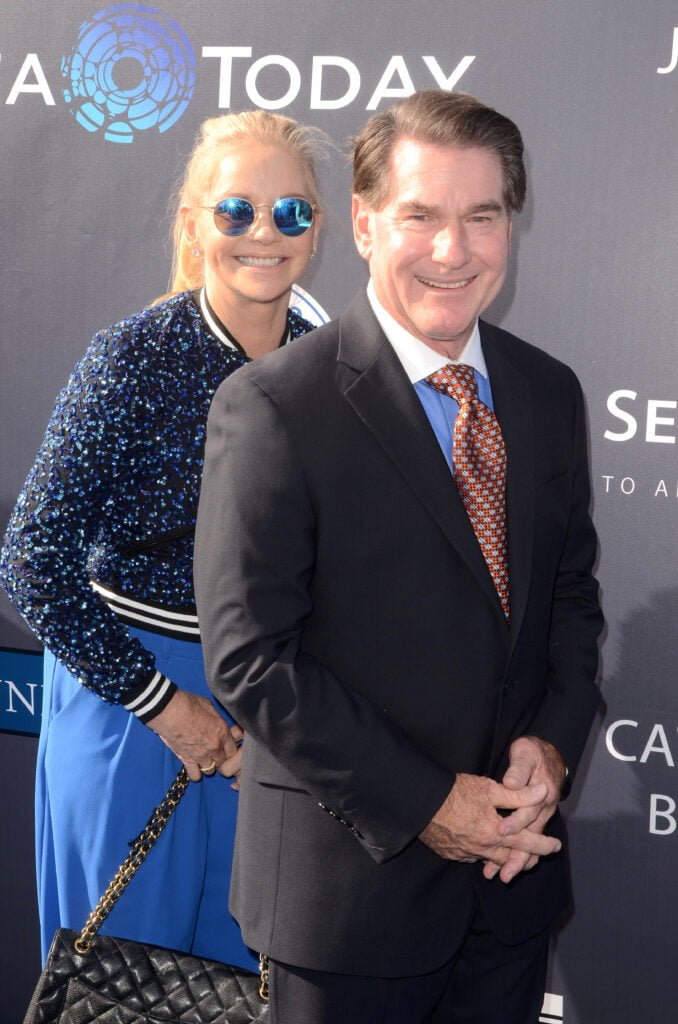The state of California stands as an interesting case study. Known for its unique primary voting system unlike any other, it places all candidates, irrespective of party affiliations, on the same primary ballet.
The top two candidates, in terms of vote-count, proceed to the general election. This system presents a unique dynamic where Republicans, sometimes, are left out of the high-profile statewide races, largely due to the firm grip that Democrats have on the Californian political landscape.
Let The Game Begin
In the arena of American politics, interesting battles are not an uncommon sight. It is often live theatre, with constituents anxiously awaiting the results in seats that may shape the future of national governance.
In one such duel, promising to be a political heavy-hitter, Republican former baseball star Steve Garvey squares off against Democratic Representative Adam Schiff for the U.S. Senate seat previously occupied by the late Dianne Feinstein.
This particular battle is a compelling spectacle, an amalgamation of sport, politics and gender issues, all against the backdrop of the Golden State, California.
The significance of this contest transcends the immediate reality of two influential figures throwing their hat in the political ring. The Senate seat in question, long held by Feinstein, a Democrat, presents a glimmer of opportunity for the Grand Old Party, the Republicans.
For many decades, California, with its predominant Democratic leanings, has offered scant opportunities for Republican nominations in high-profile races. Adding novelty to this already extraordinary situation is the fact that, for the first time in over thirty years, this Senate seat will not be held by a woman. This break in the gender streak signifies the pulsating dynamics of modern politics.
Steve Garvey

The competitor representing the GOP, Steve Garvey, is not an unknown face in the state. He has long enjoyed the limelight, not due to any political prowess, but instead due to his indisputable talent in America’s favorite pastime, baseball.
Interestingly, Garvey’s response to his nomination was ripped from the sports playbook rather than political rhetoric. Celebrating at a hotel in his hometown of Palm Desert, with a supportive crowd backing him, Garvey delivered a warning to his opponent, Adam Schiff, urging him not to underestimate his political tenacity despite California’s Democratic disposition.
In a bid to appeal to the electorates beyond party lines, Garvey promised to run a campaign tackling civic concerns that have exigent impacts on residents’ daily lives, such as the unchecked homeless crisis and a discernible surge in crime rates in cities.
Perhaps the most critical issue concerning Californians, inflation, also found mention in his campaign promise. Borrowing a phrase from sports jargon, Garvey retorted, “They say in the general election that we’re going to strike out,” amplifying his resolve, he added, “Know this: It ain’t over ‘til it’s over.”
While Garvey’s baseball legacy may not directly translate into political success, his past as a Major League Baseball MVP, who played for the Los Angeles Dodgers and San Diego Padres, sets a captivating narrative for the election.
His sports resume bolstered his support among Californians as he emerged as one of the top two vote-getters, alongside Schiff, in a preliminary Tuesday election. This underscores the potential of his appeal resonating with the voters, transcending party lines and reaching a wide electorate.
One cannot underestimate the power of personality in politics. While credentials and past accomplishments contribute to a candidate’s appeal, the battleground that is politics often leans favorably towards those who can capture the public’s imagination.
In this case, a former baseball star crossing into politics sets an intriguing stage against a seasoned political leader, amidst unpredictable times in a historically Democrat-dominated state.
As the political playoff continues in this riveting race, one thing is clear politics, like baseball, can be unpredictable. And whether on the baseball field or in the hallowed halls of the Senate, Steve Garvey’s mantra remains the same – “It ain’t over ‘til it’s over.”
This striking sentiment accurately represents not only Garvey’s campaign but also the perpetual dynamism that embodies American politics. With this electoral contest sure to captivate Californian and national audiences alike, it stands as a compelling example of politics’ unique ability to surprise, challenge, and ultimately shape the course of the nation’s destiny.
Can a Republican Win California?
Experts predict that Democrats are poised to secure the Senate seat comfortably in the November elections. While it’s no foregone conclusion, a Democratic victory would provide some respite for the party, which is currently the majority and facing significant pressure to maintain that narrow lead.
In fact, the Republican Party hasn’t managed to secure a single Senate race victory in California since 1988. This trend registers in the annals of American politics as a testament to both the enduring Democratic dominance and the Republicans’ recurring struggles.
Moving to specific faces in this political maze, Feinstein emerges as a significant name. Her presence has long dominated California politics, along with several other veteran politicians.
However, change is on the horizon, as symbolized by political figures like Garvey and Schiff, who also advanced to the November ballot in the race to fill the remainder of Feinstein’s term after the general election.The changing of the guard doesn’t end there. On the Democratic front, Gov. Gavin Newsom made a notable contribution by appointing Laphonza Butler.
Butler isn’t just any appointee; she is a veteran Democrat and an accomplished organizer. Her appointment sends a clear message of the Democrats’ intentions to continue their grip on the state.
All this sets the stage for California’s first open U.S. Senate contest. The anticipation surrounding it is palpable, both within the state and beyond. This is an opportunity for both parties to redefine their stances, engage the electorate, and set the discourse for the foreseeable future.
My Take
The political landscape in California provides an intriguing insight into American democracy. Its unique primary voting system, the reigning dominance of the Democrats, and the resilient spirit of the Republicans together paint a vibrant picture of American politics.
The impending open U.S. Senate contest is the next chapter in this fascinating tale, and all eyes are on California to see where this story leads. Writ large, it underlines the dynamism and vibrancy of democracy, the tenants of which find great expression in the political rigmarole of this west coast state.
